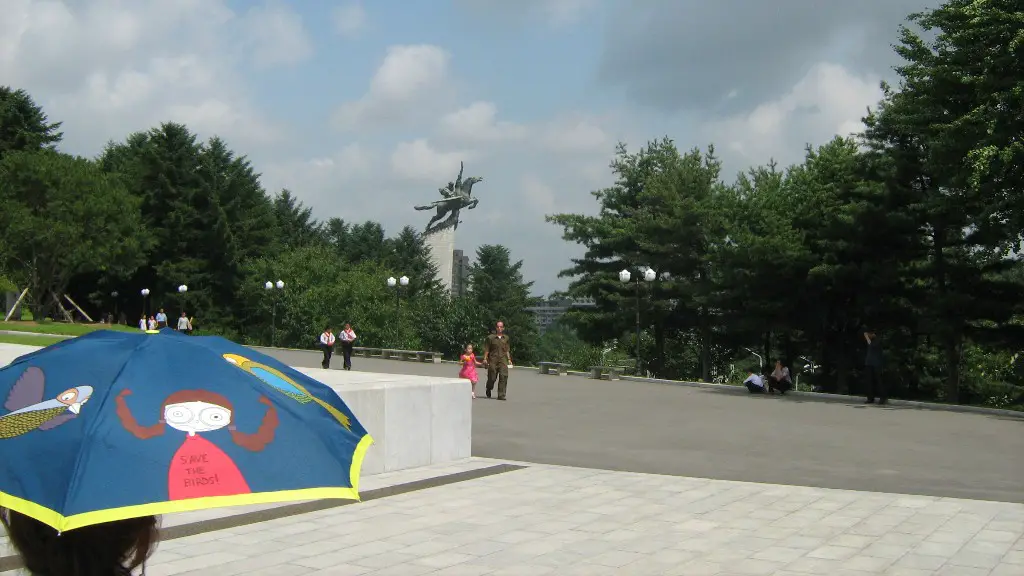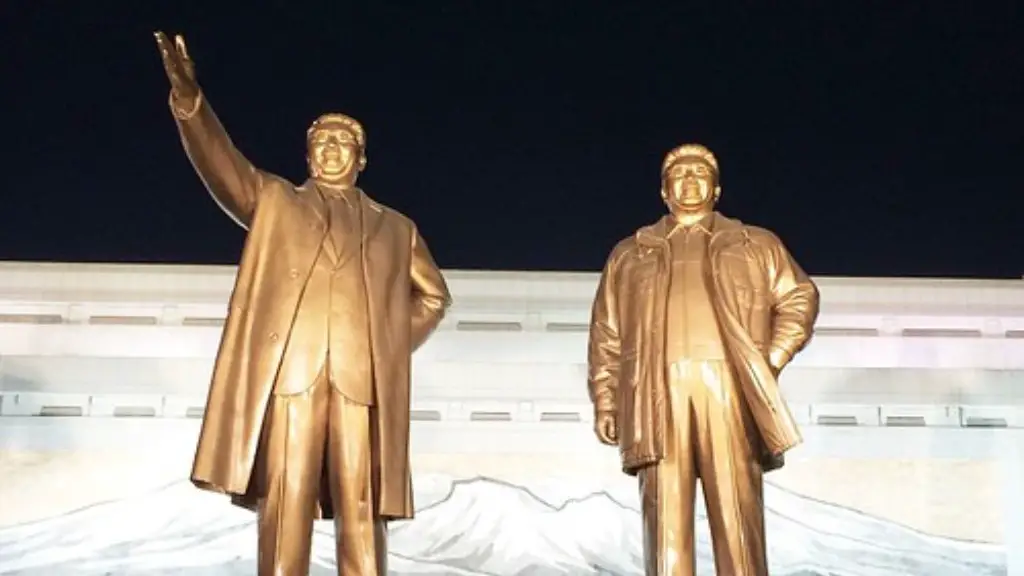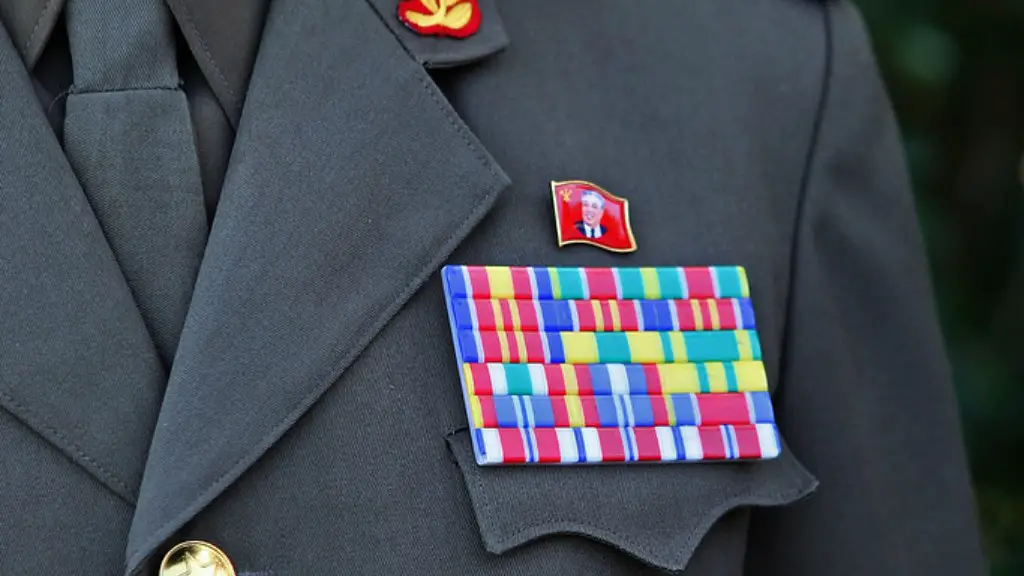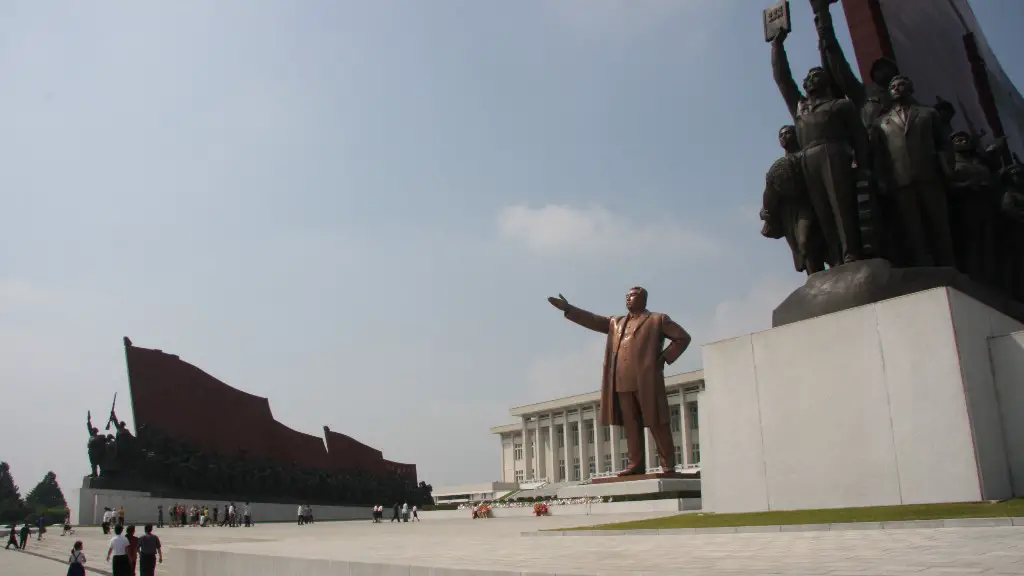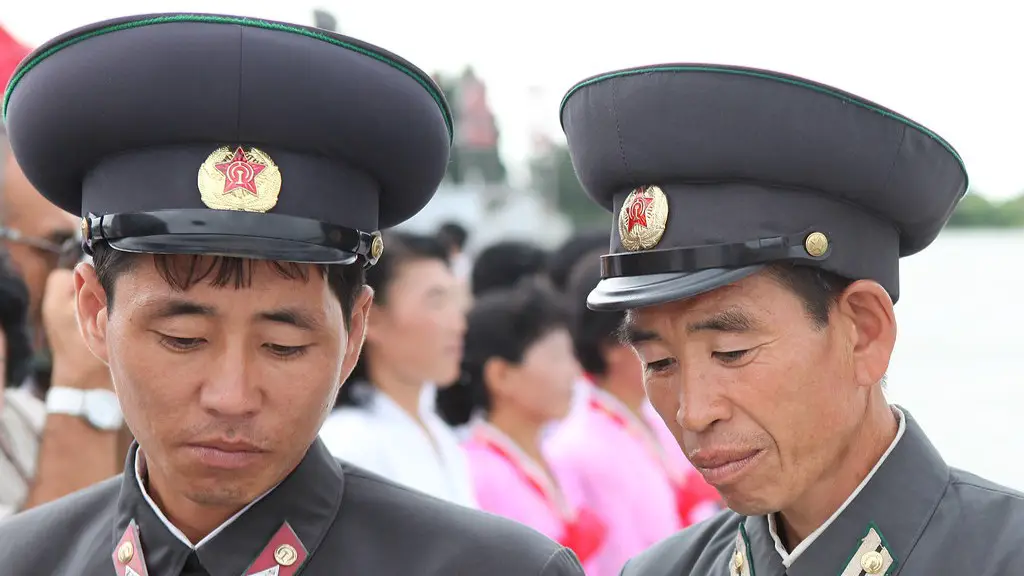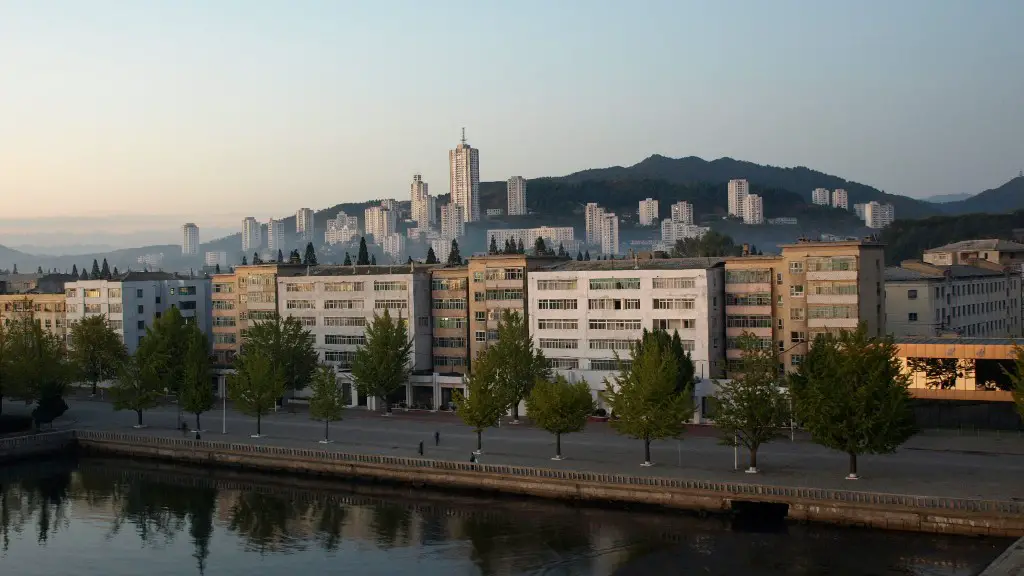Tensions between North Korea and South Korea have been a reality for over seven decades, and it appears that the possibility of a war between them is back on the table.
Since the end of the Korean War in 1953, when an armistice between the two countries put an end to the fighting, the two Koreas have been at odds, with each side amassing military forces and establishing a precarious peace. Over the years, tensions have risen and dropped, but neither side has been willing to back down or accept the other’s claims to sovereignty over the Korean Peninsula.
The current period of tension has been sparked by North Korea’s increasing nuclear activity. In recent years, the North has tested multiple missiles and conducted several underground nuclear tests in defiance of international warnings and UN sanctions, raising fears of an all-out war. This has caused alarm in South Korea and its allies, prompting them to call for a return to negotiations and diplomatic channels.
For the moment, the two Koreas are still in a state of armed truce. As of now, there is no actual fighting between them and no immediate danger of a war breaking out. However, the possibility of a war is never far from the minds of many Koreans, who are worried about the prospect of their two countries clashing on the Korean Peninsula.
That being said, the situation has been complicated by the election of Donald Trump as US President. During his campaign and since his inauguration, Trump has made it clear that he intends to take a hard line on North Korea, raising the possibility of military action against the rogue nuclear state. Though Trump has not openly threatened war against North Korea, he has hinted at the potential for it.
The potential for war is further complicated by the leadership of the North and South. North Korea is led by Kim Jong-Un, a leader who is unpredictable in his actions and highly isolated from the international community. South Korea, meanwhile, is led by the liberal President Moon Jae-in, who is attempting to engage with the North and has proposed talks to end the current stalemate.
At the moment, it seems that the two Koreas are still a long way from war. Neither side is actively looking for one, and the international community is attempting to intervene and resolve the situation through diplomacy. But until a lasting peace is reached, the possibility of war remains a real possibility.
North Korea’s Nuclear Program
North Korea’s accelerating nuclear program is one of the chief sources of tension between North and South Korea. Since 2006, the North has conducted five underground nuclear tests and multiple ballistic missile tests in defiance of international laws. Most recently, North Korea announced that it had tested a hydrogen bomb, a step up from the atomic weapons it had previously tested.
North Korea claims that its nuclear program is defensive in nature and poses no threat to its neighbors. However, this is contested by the United States, South Korea, and other countries, as North Korea’s nuclear weapons would be capable of reaching most US targets in the Asia-Pacific. For this reason, international sanctions have been imposed on North Korea in an effort to halt its nuclear program.
The US and South Korea have also stepped up their military presence in the region in response to the nuclear threat. In particular, the US has deployed additional missile defense systems in South Korea, as well as military exercises near the Korean Peninsula.
The US and South Korea have not ruled out resorting to military action if North Korea refuses to comply with international sanctions. This has increased the risk of war between the two sides, with many concerned that the situation could quickly spiral out of control.
Donald Trump’s Impact
The election of Donald Trump to the US presidency has had a significant effect on the situation between North and South Korea. Since his inauguration, Trump has made it clear that he will take a hard line on North Korea and will not accept its nuclear activities.
Most recently, Trump warned that the US could take “major” action against North Korea if it did not comply with international sanctions. The US has also imposed additional economic sanctions on North Korea and deployed additional military forces in the region.
Trump has been willing to employ aggressive rhetoric against North Korea, saying that diplomatic options were exhausted. This has raised fears among many observers that he may be willing to resort to military action to deal with North Korea, a move that could easily lead to war between North and South Korea.
However, Trump has also tried to reach out to North Korea, saying that he would be willing to hold talks with the North Korean leadership if they were willing to denuclearize and comply with international sanctions. This has been seen as a potential way to de-escalate the current tensions and avert a war.
South Korean Insecurity
The South Korean government is also feeling the pressure from the escalating tensions. The South Korean public is justifiably concerned about the possibility of a war, and the government has sought to reassure them that war is not imminent.
However, the South Korean government is also acutely aware of its vulnerability in the face of North Korea’s military threat. In particular, South Korea is concerned about its lack of nuclear weapons and the threat posed by North Korea’s intercontinental ballistic missiles. This has led the South Korean government to invest in missile defense and other military capabilities to protect its citizens.
At the same time, the South Korean government has tried to reduce the chances of war by engaging with the North through diplomatic channels. This has been welcomed by the international community, and South Korean President Moon Jae-in has called on North Korea to return to negotiations in order to resolve the crisis.
International Intervention
The international community has also sought to intervene in the situation between North and South Korea. The UN has imposed harsh economic sanctions on North Korea in an effort to halt its nuclear program, and many countries have expressed their support for a diplomatic solution.
Likewise, the US and China, the two countries with the most influence over North Korea, have attempted to resolve the crisis. The US has increased its military presence in the region and imposed economic sanctions, while China has called for the return to negotiations and has implemented the UN sanctions.
For the moment, the international community appears to prefer a diplomatic solution to the crisis, and has called on both sides to return to the negotiating table and attempt to resolve their differences peacefully. However, if North Korea refuses to comply with the international sanctions, then a military confrontation could become more likely.
The Way Forward
The possibility of a war between North and South Korea appears to be increasing, as tensions between the two countries continue to rise. Despite the efforts of the international community, North Korea has refused to comply with international sanctions and appears intent on maintaining its nuclear program. In response, the US and South Korea have taken a hard line against North Korea, raising the risk of a military confrontation.
At the same time, both South Korea and the US have expressed their willingness to talk to North Korea and offered to hold talks if the North is willing to denuclearize. The international community also continues to call for a diplomatic solution, and, for the moment, war does not appear to be an immediate threat.
However, the situation is fluid, and the possibility of war cannot be ruled out until a lasting peace is secured between the two Koreas. Until then, both sides will have to continue to navigate the delicate and dangerous tensions on the Korean Peninsula.
